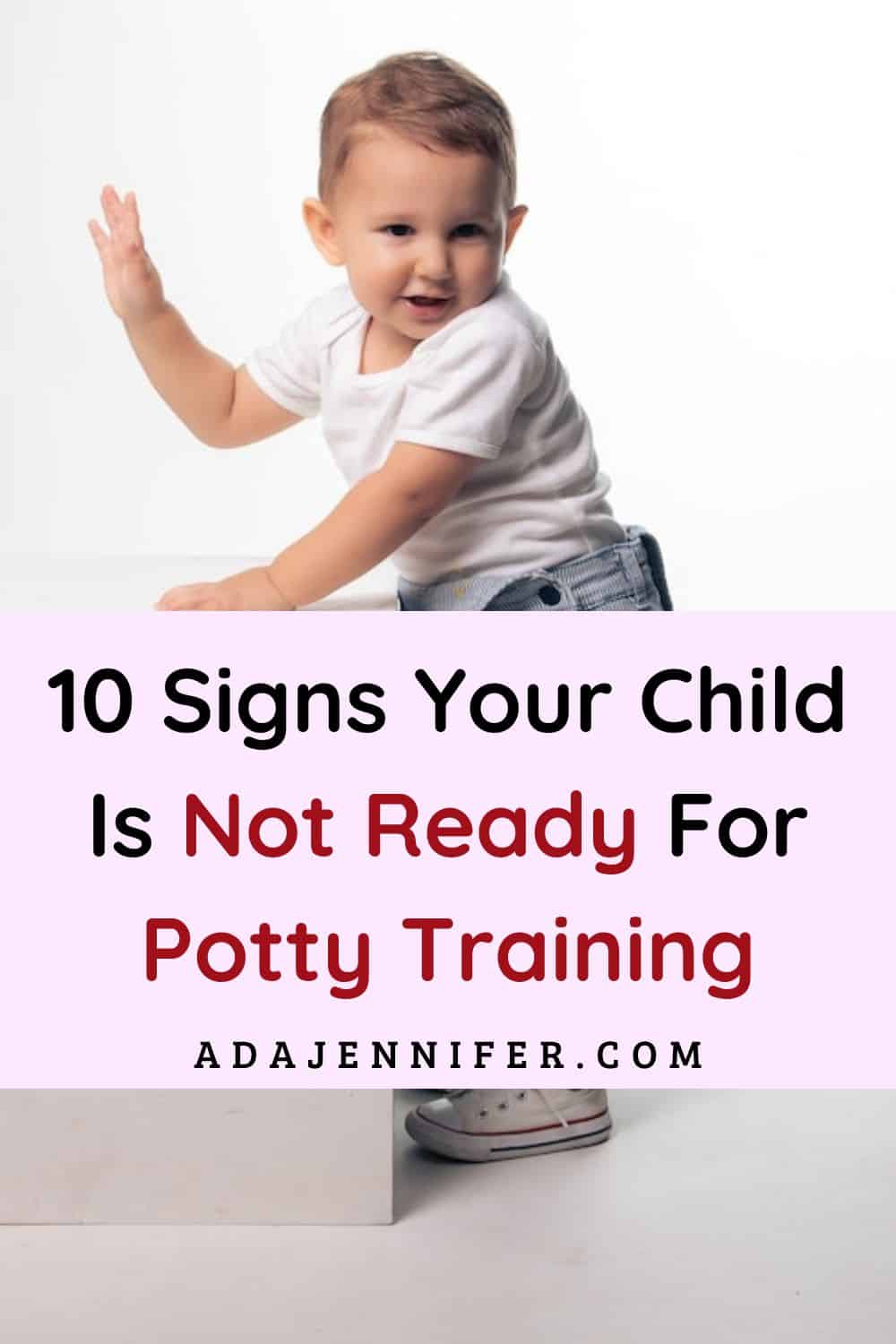10 Signs Your Child Is Not Ready For Potty Training
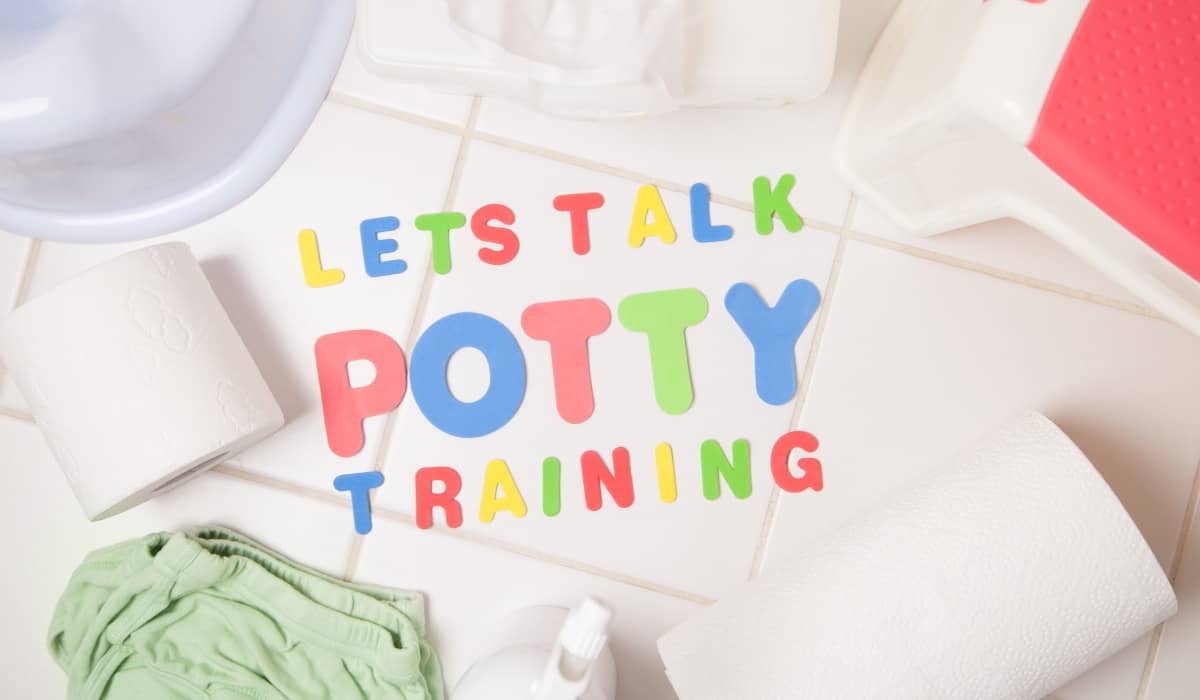
As parents, we want our children to grow and develop at a healthy pace, and baby potty training is a big part of that. While it’s a milestone to look forward to, it’s important to note that not all children are ready for potty training at the same time.
In fact, forcing a child to do potty training too early can cause frustration and setbacks. So, in this article, we’ll list 10 signs your child is not ready for potty training and also help you figure out the following:
- Is my child ready to potty train?
- What is the best time to potty train?
- 10 signs your child is ready for potty training!
- What age are kids potty trained?
- When to stop potty training and wait?
So without further ado, let’s begin!
Potty Training Readiness
Potty training can be a daunting and overwhelming experience for parents and children. The thought of ditching diapers and transitioning to big kid underwear can evoke a mix of emotions, from excitement to anxiety.
However, it’s important to remember that every child develops at their own pace, and there is no one-size-fits-all approach to potty training.
One of the biggest mistakes parents make—pushing their children into potty training before they are ready. It’s understandable if you want to get your child out of diapers ASAP, but forcing the issue can lead to annoyance and irritation for you and your child.
Every child is different, and some may only be ready to begin potty training once they are 3 or 4 years old.
Whether you’re a first-time parent or have undergone potty training, this article will offer valuable insights and information to help you navigate this critical stage in your child’s development.
Related Article: Why you want to rise up before your kids and how to do it?
10 Signs your child is not ready for potty training!
Potty training is a significant step forward in your child’s development, but waiting until your child is ready is essential. Pushing your child to use the potty before they’re ready can be stressful.
The good news is that some signs can help you determine when to start potty training. But before that, let’s talk about 10 signs your child is not ready for potty training:
1. Lack of interest
One of the most obvious signs your child is not ready for potty training is a lack of interest in using the toilet. They may not express any desire to start using the potty, or they may even actively resist any encouragement attempts.
It’s important to remember that every child develops at their own pace. Just because your friend’s child is already potty trained doesn’t mean that your child should be too. If your child is not interested in using the potty, then it’s best to wait a little longer!
2. Inability to stay dry
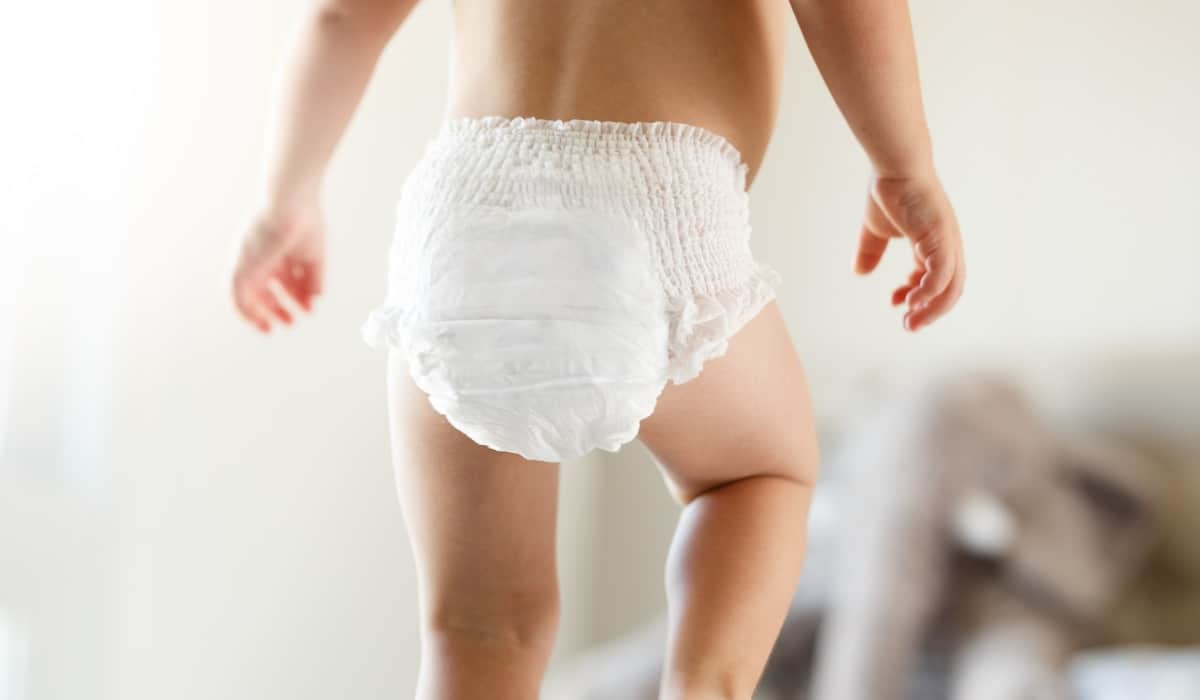
Another sign that your child may need more time to be ready for potty training is an inability to stay dry for at least two hours. This is a sign that their bladder and bowel control is not yet fully developed, and they may still need the safety and security of a diaper!
3. Difficulty with clothing
Children who struggle with pulling their pants up and down on their own are not yet ready for potty training!
This shows that they still need to develop the necessary fine motor skills to handle the mechanics of using the toilet independently. Having difficulty with basic motor skills is one of the signs your toddler is not ready for potty training.
4. Lack of wiping and cleaning skills
Potty training involves more than just using the toilet; children also need to learn how to properly wipe and clean themselves after using it. If your child still needs to develop these basic skills, it may be one of the signs your child is not ready for potty training!
5. Resistance or anxiety
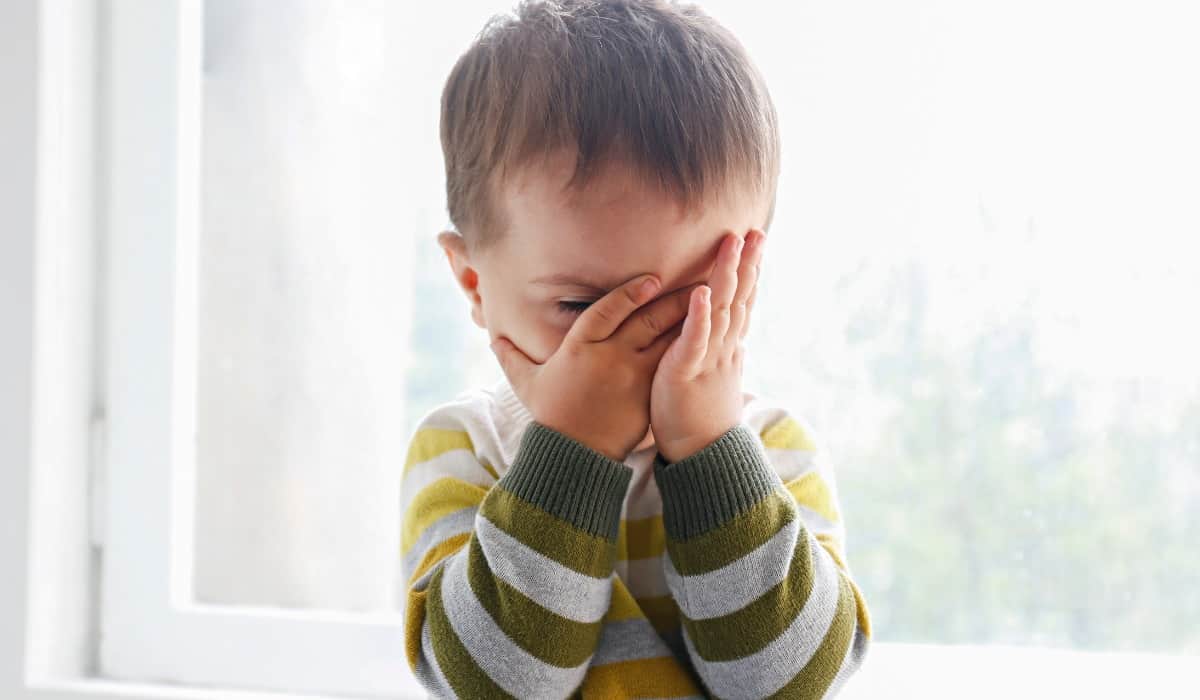
If your kid is resistant or anxious about using the potty, it shows they are not yet ready. They may feel uncomfortable or unsafe using the toilet, and it may be best to wait until they are more comfortable with the potty training process.
It’s important to make potty training a positive experience for your child. Forcing them to use the potty before they’re ready can make it a negative experience! Also, it is one of the signs of potty training too early!
6. Reliance on pacifiers or bottles
Children who are still reliant on pacifiers or bottles may not yet be ready to give up their diapers. These baby items provide comfort and security, and it may be best to wait until your child is prepared to let go of them before starting potty training.
7. Limited language development
Potty training requires effective communication between parent and child. If your child is still in the early stages of language development and cannot effectively communicate their needs or feelings, it may be difficult to successfully potty train them.
8. Major life changes
If your child is experiencing a major life change, such as a move or the arrival of a new sibling, it may not be the best time to start potty training.
These changes can be stressful and overwhelming for young children, and it may be better to wait until they have adjusted before starting potty training.
9. Lack of understanding of cause and effect
To successfully potty train, children need to understand the cause-and-effect relationship between feeling the urge to go and using the toilet. They need to learn to figure out how it feels when you need to poop.
If your child still needs to develop this understanding, it’s one of the signs your child is not ready for potty training!
10. Emotional and developmental maturity
Potty training can be stressful and challenging; it requires a certain emotional and developmental maturity level.
If your child is not yet ready to handle the stresses of potty training, it may be best to wait until they are more mature before beginning the process. You must know the normal potty training age and if your child can undergo this big change.
In conclusion, if you can see these signs your child is not ready for potty training, it’s best to wait a little more. You can use this time to help your children develop motor skills and maturity!
However, when do you start potty training? How to know, “is my toddler ready to potty train?” Or what age for potty training is perfect? Let’s learn more ahead in the article!
How do you know when to start potty training?
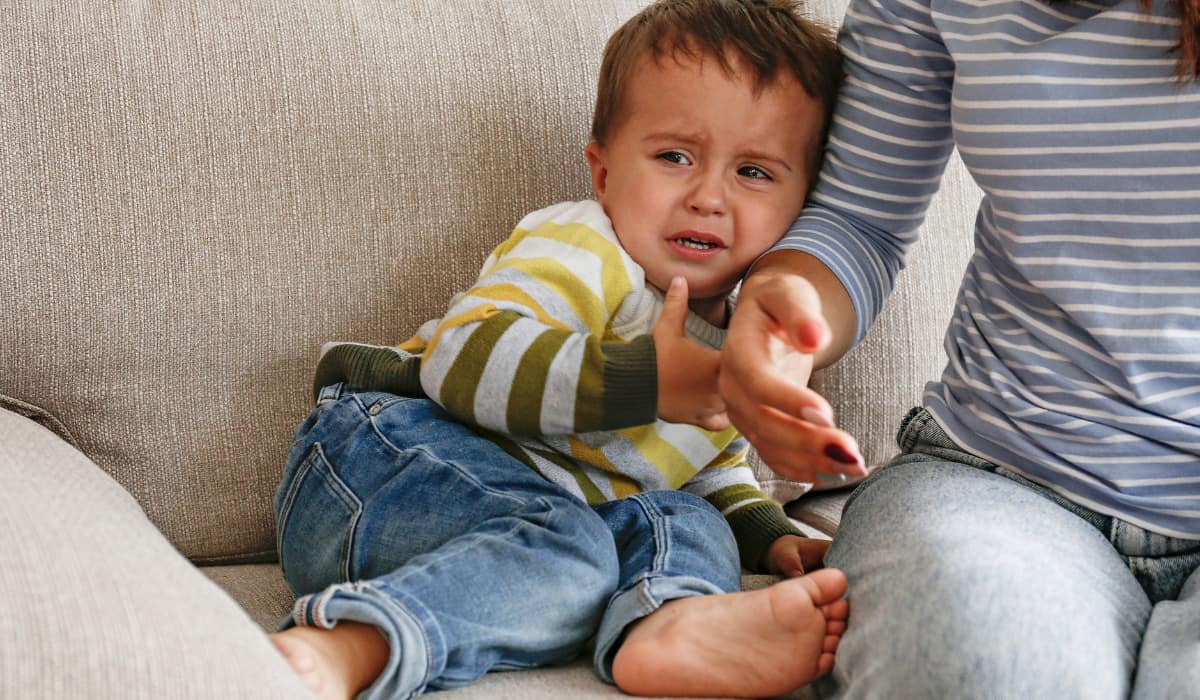
Potty training is a crucial developmental milestone in a child’s life, and it’s important to approach it with patience and understanding. Knowing when to start potty training is a question that many parents face, and there are a few different factors to consider.
a) First and foremost, it’s important to remember that every child is different, and there is no set age for when potty training should begin.
Some children may be ready to start as early as 18 months, while others may only be ready once they are three years old. You need to be patient and wait until your child shows signs for potty training.
b) It can also be helpful to consider your own schedule and routine. Potty training requires a lot of time and attention, so it’s essential to make sure you have the time and energy to devote to it.
It would be best if you chose a time when you can be at home with your child for a few days in a row. This way, you can focus on the process of potty training better!
c) Another factor to consider is your child’s personality and temperament. Some children may be more resistant to change and take longer to adjust to the idea of using the potty, while others may be more eager to try it out.
Overall, the decision to start potty training should be based on your child’s readiness, your own schedule, and your child’s personality and temperament. Taking a patient and supportive approach can help your child navigate this important developmental milestone successfully!
7 Signs your child is ready for potty training!
Potty training is a big step towards your child’s development, marking the beginning of their transition from diapers to using the toilet.
While every child develops at their own pace, there are some common signs a toddler is ready to potty train that parents can look out for. Here are a few signs your child is ready for potty training:
1. Staying dry for longer periods
If your child can stay dry for at least 2 hours, it indicates that they have developed some control over their bladder. This is a good sign for potty training. It means they can hold their pee or poop and control the release!
Being dry longer than usual portrays good bowel control. So if your child has this control, it is one of the signs a toddler is ready to potty train.
2. Regular bowel movements
More signs child is ready for potty training include regular bowel movements. If your child tends to have bowel movements around the same time each day or has a regular pattern of bowel movements, it can be a good sign that they are ready for potty training.
When a child can recognize the urge to go and anticipate when they need to go, they are more likely to be successful with potty training.
3. Showing interest in the toilet
Is my toddler ready to potty train? Well yes. If your child is curious about the toilet and shows interest in what happens there, it’s one of the signs of ready to potty train.
This interest can manifest in different ways, such as wanting to watch family members use the toilet, asking questions about it, or even trying to mimic what they see.
Showing interest in the toilet indicates that your child is beginning to recognize the bathroom function and may be ready to use it themselves.
Related Article: How to teach a child respect?
4. Pulling at a dirty diaper
How to know when to potty train? If your child is pulling at a dirty diaper or showing discomfort when wet or soiled, it’s one of the signs baby is ready for potty training.
This behavior can also indicate that your child is beginning to feel uncomfortable in a wet or dirty diaper and is seeking relief. They are becoming aware of their bodily functions and are ready to start using the toilet instead of relying on a diaper!
5. Being able to communicate
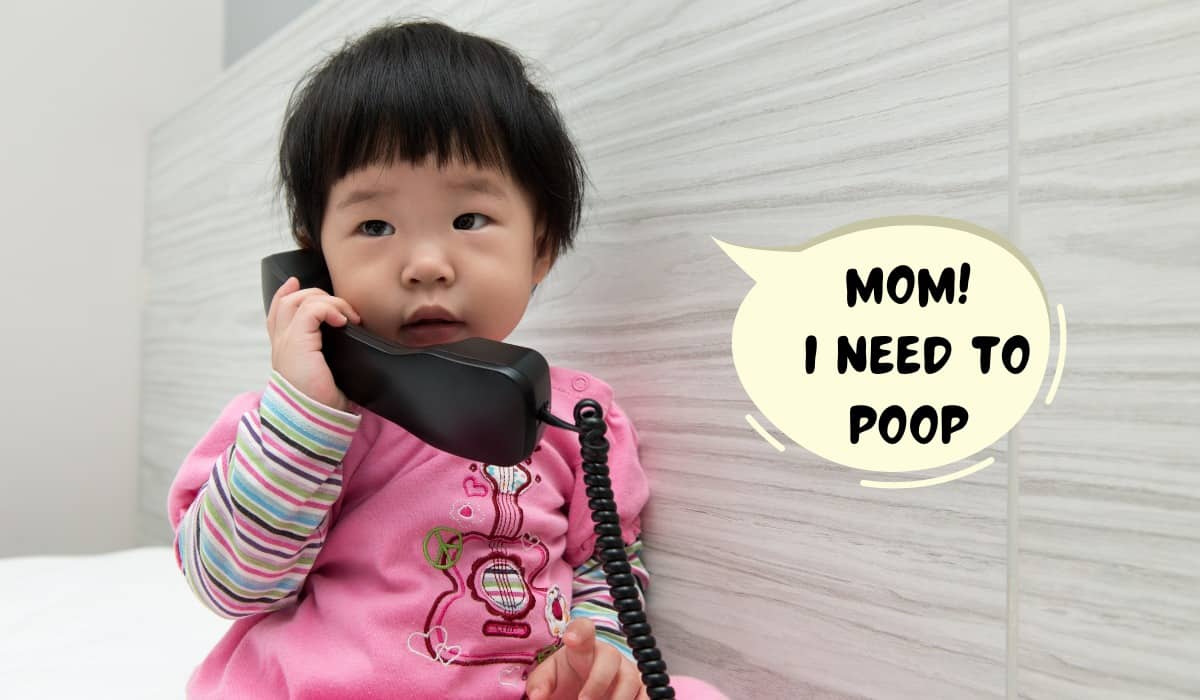
When is toddler ready to potty train? If your child can communicate with you about their bodily functions, such as telling you when they need to go or that they have already gone, it may be a sign that they are ready for potty training.
Can your child use words or gestures to signal the need to go? If your child can communicate that they need to use the toilet by using words or gestures like pointing, that can be a positive sign that they are ready to start using the potty.
6. Following simple instructions
Can your child follow simple instructions like “sit on the potty” or “pull down your pants,”? If yes, then it indicates that they can process and understand language, which is an essential skill for successful potty training.
If your child is able to follow simple instructions, such as sitting on the potty when you ask them to, they are showing signs a child is ready to potty train.
7. Having some physical control
Having physical control is another vital sign that your child is ready for potty training. Here are some examples of physical control that may indicate readiness:
a) Being able to walk and sit independently: If your child is able to walk and sit down on a potty chair or a regular toilet without assistance, it shows that they have the physical control to use the bathroom.
b) Being able to wipe themselves: If your child can wipe themselves after using the toilet, it shows that they have the physical control to reach and clean themselves properly. This skill is an essential part of using the bathroom independently.
c) Being able to undress themselves
Is my child ready to potty train? Well, if your child can undress themselves, potty training may be more accessible as they will need to remove their clothes before using the toilet.
If your child can pull their pants up and down by themselves, it shows they have some level of physical agility and control over their body. This skill is important for potty training, as they will need to be able to pull their pants down when using the toilet and pull them back up when finished.
It indicates your kid is not a child anymore and it’s one of the signs of ready to potty train!
d) Demonstrating an interest in underwear
One of the signs your baby is ready to potty train is when your child is interested in wearing “big kid” underwear or talks about not wanting to wear diapers anymore.
If your child can understand and explain what underwear is for, it can be an indication that they are beginning to understand the concept of using the toilet instead of wearing diapers.
e) Demonstrating readiness in other areas
If your child demonstrates readiness in other areas, such as independence or following routines, well, these are signs your child is ready to potty train.
Tips for Successful Potty Training
Potty training signs can be a challenging time for both parents and children.
However, with patience, understanding, and the right approach, it can also be a successful and rewarding experience. Here are some tips for successful potty training:
Choose the right time.
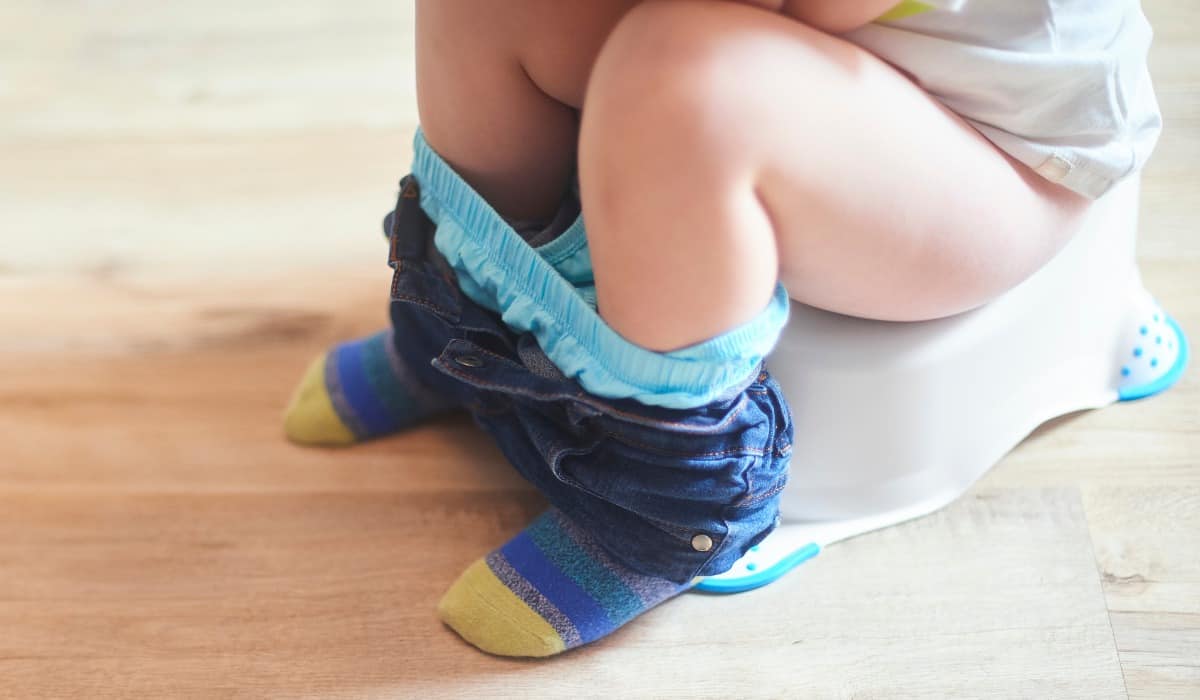
So, how do you know when to start potty training? It’s important to choose the right time to begin potty training. This means waiting until your child shows signs of readiness and you have the time and patience to devote to the process.
With the right approach, most children will eventually become fully potty trained, even if they experience regression or setbacks along the way.
Create a Positive Environment
Make potty training a positive experience for your child by developing a welcoming and comfortable environment. Consider buying a fun potty chair or letting your child pick out their own underwear.
Related Article: How to deal with a disrespectful teen?
Use positive reinforcement
Positive reinforcement can be a powerful tool in potty training. Using praises and rewards is a great potty training tip that can help motivate and encourage your child during the process.
Here are some examples of positive reinforcements:
a) Verbal praise: One of the simplest and most effective forms of positive reinforcement is verbal praise.
Whenever your child uses the potty successfully, give them lots of verbal praise, such as saying, “Good job!” or “I’m so proud of you!” This will help your child feel proud of their achievements and encourage them to continue using the potty.
b) Stickers or stamps: Another popular form of positive reinforcement is giving your child stickers or stamps for every successful potty trip.
You can create a chart and have your child add a sticker or stamp each time they use the potty. Seeing the chart fill up with stickers can be an excellent motivator for your child.
c) Treats or small rewards: You can also offer your child a small reward, such as a favorite snack or toy, for successful potty trips. Make sure the rewards are small and consistent so your child knows what to expect.
d) High-fives or hugs: Simple gestures like high-fives or hugs can also be great forms of positive reinforcement. These physical affirmations can help your child feel loved and supported during the potty training process.
Be Patient
Potty training can be a slow process, and it’s essential to remain patient and understanding. Don’t pressure your child to use the potty before they’re ready, and be prepared for setbacks and accidents.
Ultimately, the best approach is to pay attention to your child’s cues and readiness and to approach the process with patience, consistency, and a positive attitude.
Keep a Potty Training Chart
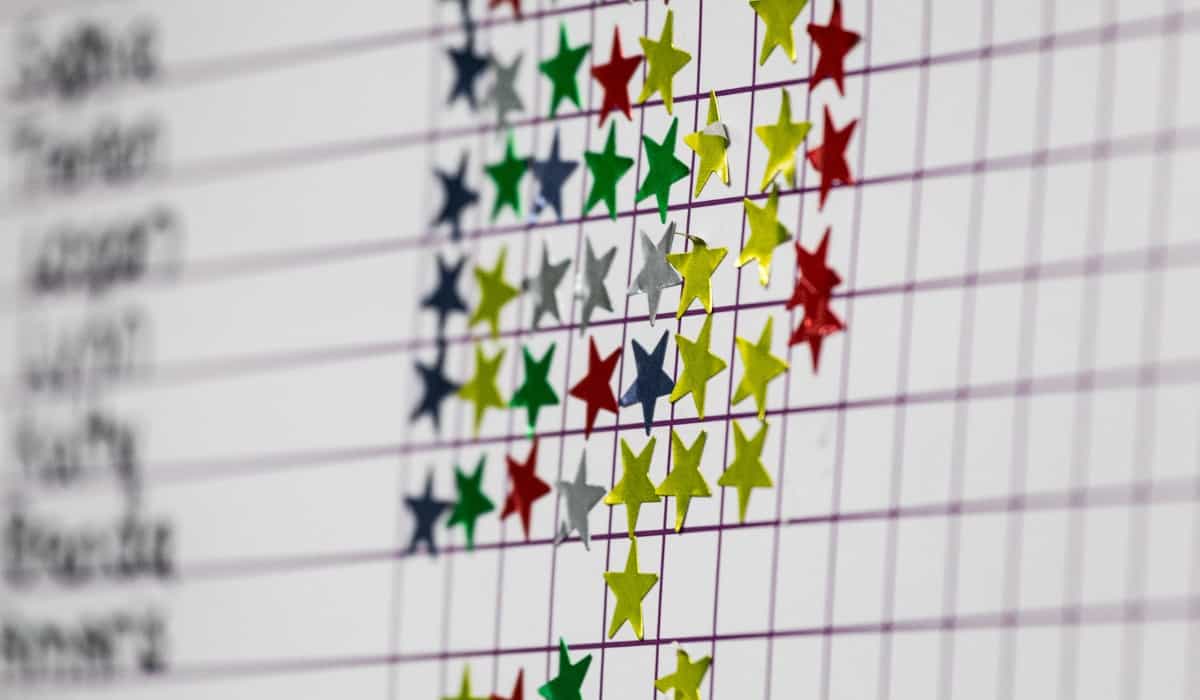
Keeping a potty training chart is a great way to track your child’s progress and provide positive reinforcement for their successes. Here are some examples of what a potty training chart might look like and how you can use it:
a) Simple chart: You can create a simple chart with rows and columns for each day of the week. Each time your child successfully uses the potty, they get to add a sticker or checkmark to the chart.
b) Themed chart: You can also create a themed chart that your child will enjoy, such as a chart with their favorite cartoon character or animal. Use stickers or pictures related to the theme to mark successful potty trips.
c) Reward chart: You can create a chart that includes a reward at the end for a certain number of successful potty trips. For example, once your child reaches 10 successful potty trips, they get to choose a small reward, like a favorite snack or toy.
Once you have your chart, display it in a prominent location where your child can see it and add stickers or check marks quickly. Please encourage your child to participate by letting them add the stickers or checkmarks themselves.
Frequently Asked Questions!
When potty training your child, your mind may get stocked with questions like,
- How to know when to start potty training?
- What age are kids potty trained?
- What are some signs my toddler is ready to potty train?
We know it can feel clueless, but these FAQs will explain all your doubts. So that you can potty train your children in a fantastic way!
Question 1. When is a good time to start potty training? or At what age should a child be fully potty trained?
Every child develops at their own pace, but most children are ready for potty training between the ages of 2 and 3.
The age at which a child should be potty trained can vary based on individual factors such as their physical, emotional, and cognitive development.
While there is no hard and fast rule, most children are typically ready to begin potty training between 18 months and three years old.
However, if your 3 year old not interested in potty training, it’s okay. It’s essential to remember that every child is unique, and there is no set timeline for when a child should be potty trained.
Some children may show readiness for potty training earlier, while others may need more time to develop the necessary skills and maturity.
Question 2. How long does potty training take?
Potty training can take anywhere from a few days to several months, depending on the child’s readiness and the methods used.
Potty training is a milestone that varies in duration depending on individual factors such as the child’s age, temperament, and readiness, as well as the approach taken by the caregiver or parent.
While some children may become fully potty trained in a matter of weeks, others may take several months or even longer.
Question 3. What should I do if my child is not ready for potty training?
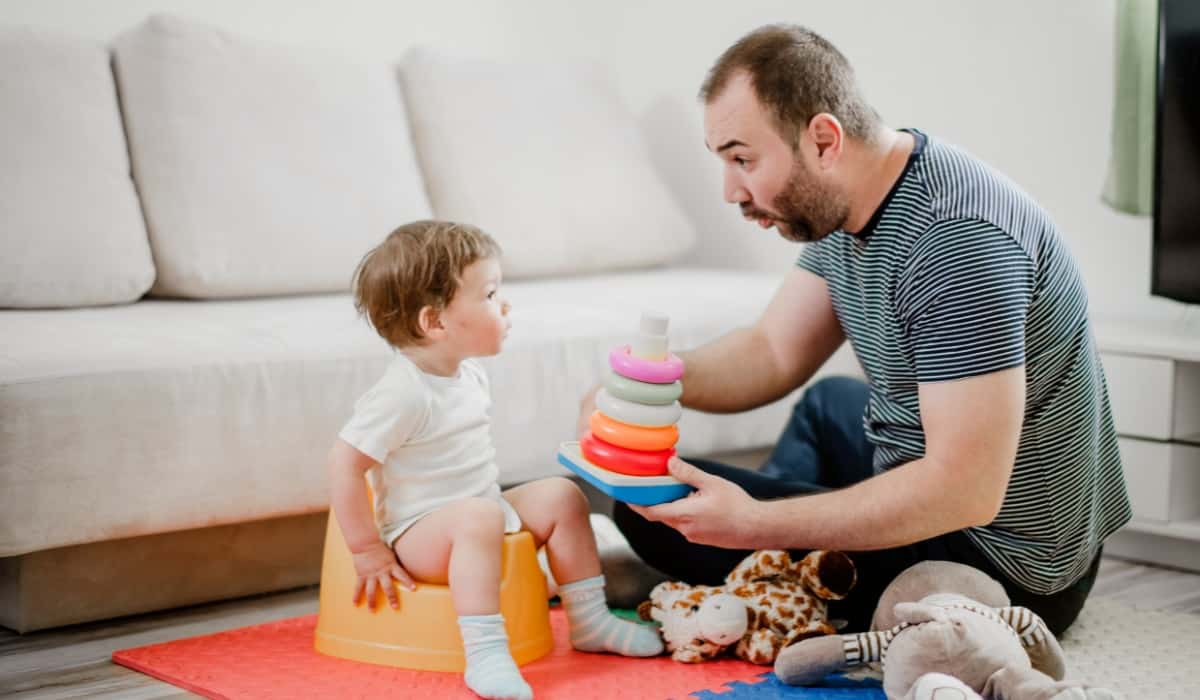
If your child is not ready for potty training, it’s best to wait a little longer and try again later. You must approach the situation with patience and understanding.
Potty training can be a complex process that requires a range of skills and developmental milestones, and every child progresses at their own pace. Focus on preparing your child for potty training rather than pushing them to start before they’re ready.
This can involve,
- introducing them to the concept of using the potty,
- teaching them the words and signals associated with potty training,
- and helping them build the physical and cognitive skills necessary for success.
Create a positive and supportive environment around potty training. This can involve offering encouragement and praise for small steps and successes. Avoid punishment or negativity if accidents or setbacks occur.
Ultimately, the most important thing is to remain patient, flexible, and supportive as your child navigates the process of potty training.
Question 4. Should I use rewards for potty training?
Rewards can be a great way to motivate your child, but it’s important to use them in moderation. The use of rewards in potty training is a topic of much debate among parents and experts alike.
While some parents swear by the use of incentives and rewards to motivate their child to use the potty, others argue that this can create a reliance on external rewards rather than an intrinsic motivation to learn.
You can offer them rewards like:
- Stickers or stamps
- The chance to wear their favorite underwear or choose a special outing as a reward for successful potty use.
- You might offer verbal praise
- High-fives
- Treats and desserts
- Praise and recognition
- Special activities
- Special privileges as a way of celebrating your child’s successes and encouraging them to continue trying.
It’s worth noting that while rewards can be a helpful tool in some cases, they should not be used as a replacement for consistency, patience, and support.
Question 5. What should I do if my child regresses during potty training or when to stop potty training and wait?
Regression is normal during potty training. Go back to the basics of potty training and try to identify any possible triggers that may have caused the regression.
It’s common for children to experience regression during the potty training process, even after they’ve made progress and begun using the potty consistently. While this can be frustrating for parents, they should approach the situation with patience and understanding.
The best way to address regression in potty training is to identify and handle any underlying factors contributing to the setback.
For example, changes in routine, stress, or illness can all impact a child’s ability to use the potty consistently. By addressing these underlying issues, you can help your child get back on track with their potty training.
Bottom line
Potty training can be challenging and sometimes frustrating for parents and children. However, certain signs indicate a toddler is ready to begin potty training.
By recognizing these signs, parents can approach the process with confidence and positivity. Regular bowel movements, interest in the toilet, pulling at a dirty diaper, communication skills, physical control, interest in underwear, and readiness in other areas are all signs that a child is ready to start potty training.
Using positive reinforcement and a potty training chart can also help to make the process more successful and enjoyable for both parent and child. So, if you see these signs in your toddler, don’t hesitate to take the leap and start potty training today! With patience, positivity, and the right approach, you’ll be on your way to a diaper-free future in no time.
Pin For Later!
